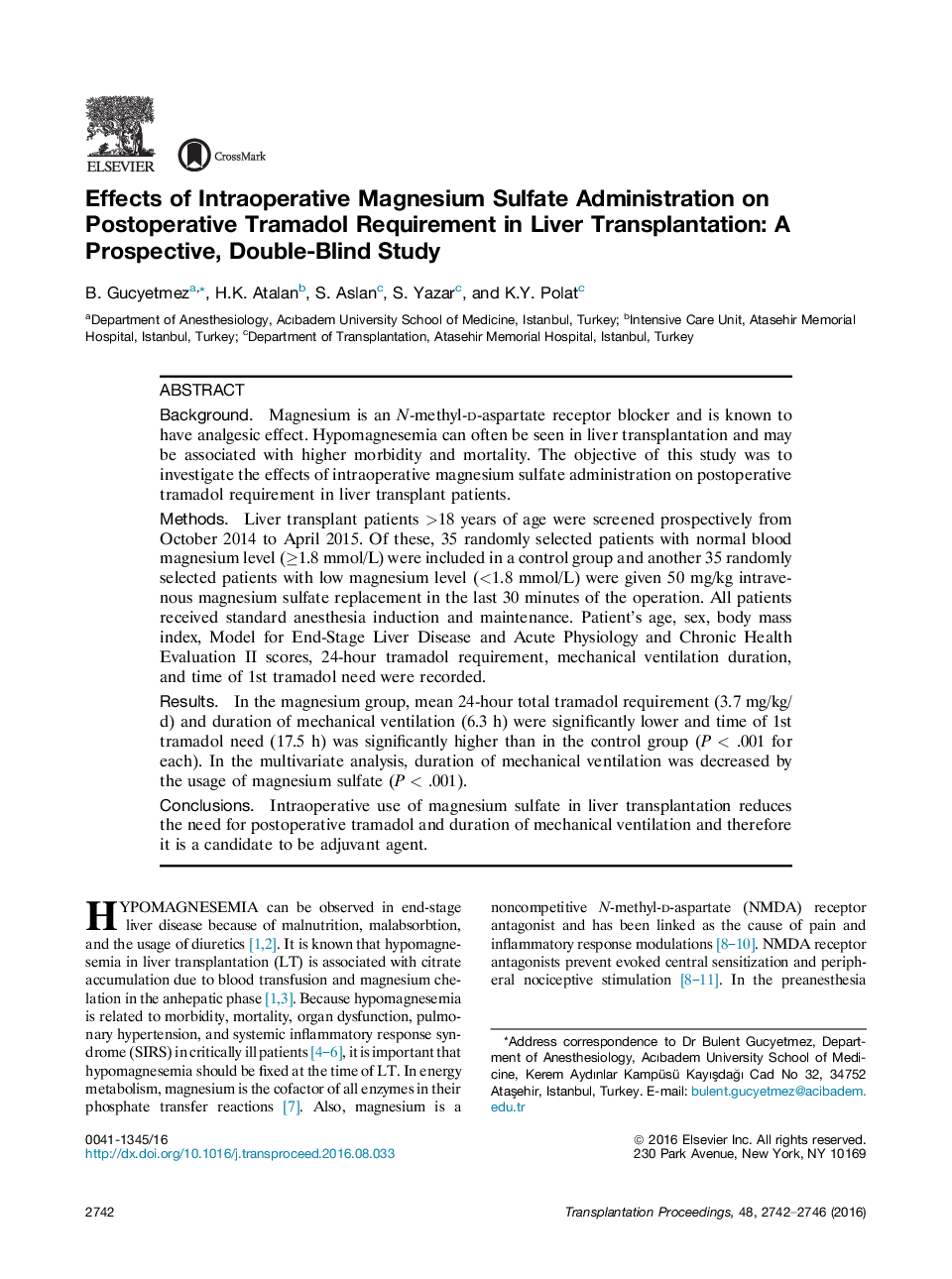| Article ID | Journal | Published Year | Pages | File Type |
|---|---|---|---|---|
| 5729216 | Transplantation Proceedings | 2016 | 5 Pages |
â¢Hypomagnesemia can be seen during liver transplantation.â¢If hypomagnesemia is identified during liver transplantation, it should be treated during surgery.â¢Postoperative tramadol requirement, duration of mechanical ventilation, and length of ICU stay can be decreased by means of IV magnesium sulfate administration.
BackgroundMagnesium is an N-methyl-d-aspartate receptor blocker and is known to have analgesic effect. Hypomagnesemia can often be seen in liver transplantation and may be associated with higher morbidity and mortality. The objective of this study was to investigate the effects of intraoperative magnesium sulfate administration on postoperative tramadol requirement in liver transplant patients.MethodsLiver transplant patients >18 years of age were screened prospectively from October 2014 to April 2015. Of these, 35 randomly selected patients with normal blood magnesium level (â¥1.8 mmol/L) were included in a control group and another 35 randomly selected patients with low magnesium level (<1.8 mmol/L) were given 50 mg/kg intravenous magnesium sulfate replacement in the last 30 minutes of the operation. All patients received standard anesthesia induction and maintenance. Patient's age, sex, body mass index, Model for End-Stage Liver Disease and Acute Physiology and Chronic Health Evaluation II scores, 24-hour tramadol requirement, mechanical ventilation duration, and time of 1st tramadol need were recorded.ResultsIn the magnesium group, mean 24-hour total tramadol requirement (3.7 mg/kg/d) and duration of mechanical ventilation (6.3 h) were significantly lower and time of 1st tramadol need (17.5 h) was significantly higher than in the control group (P < .001 for each). In the multivariate analysis, duration of mechanical ventilation was decreased by the usage of magnesium sulfate (P < .001).ConclusionsIntraoperative use of magnesium sulfate in liver transplantation reduces the need for postoperative tramadol and duration of mechanical ventilation and therefore it is a candidate to be adjuvant agent.
